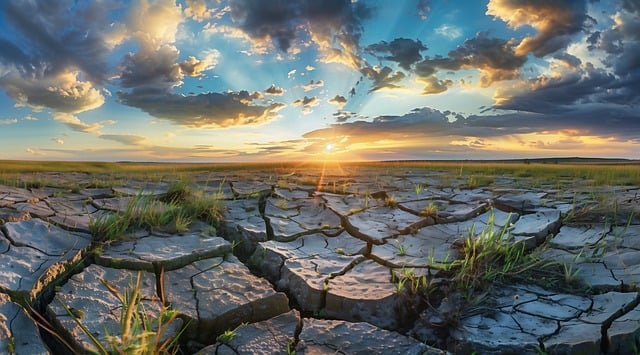
Introduction:
Climate change poses one of the most significant challenges of our time, with far-reaching implications for the planet and future generations. Urgent action is required to mitigate its effects and transition towards a sustainable future. In this article, we will explore the pressing issue of climate change, its impacts, and the actions individuals, communities, and governments can take to address it.
Understanding Climate Change:
Climate change refers to long-term shifts in global weather patterns, primarily driven by human activities, such as the burning of fossil fuels and deforestation. Consequently, there is an increase in greenhouse gas emissions that trap heat in the Earth’s atmosphere, leading to rising temperatures, melting ice caps, sea-level rise, extreme weather events, and disruptions to ecosystems.
Impacts of Climate Change:
- Environmental Consequences: Climate change threatens biodiversity, causing habitat loss and species extinction. Moreover, it contributes to the deterioration of ecosystems, including coral reefs, forests, and wetlands.
- Human Health Risks: Rising temperatures and changing weather patterns can have adverse effects on human health. For instance, increased heat-related illnesses and the spread of infectious diseases are becoming more prevalent. Additionally, compromised access to clean water and food security pose significant challenges.
- Socioeconomic Disruptions: Climate change poses risks to economies and livelihoods. For example, reduced agricultural productivity, increased frequency of natural disasters, displacement of communities due to sea-level rise, and economic disparities are some of the consequences.
Actions to Address Climate Change:
- Transition to Renewable Energy: Shifting away from fossil fuels and embracing renewable energy sources, such as solar and wind power, is crucial. Governments, businesses, and individuals can invest in clean energy infrastructure and support policies that incentivize renewable energy adoption.
- Sustainable Transportation: Encouraging the use of public transportation, promoting electric vehicles, and investing in cycling and pedestrian infrastructure can help reduce carbon emissions from the transportation sector. Furthermore, improving public transportation accessibility and efficiency can lead to significant positive impacts.
- Conservation and Reforestation: Protecting and restoring natural habitats, including forests, wetlands, and mangroves, can aid in carbon sequestration and preserve biodiversity. Additionally, establishing protected areas and implementing sustainable land-use practices are vital steps towards conservation.
- Energy Efficiency: Adopting energy-efficient practices in buildings, industries, and households can significantly reduce energy consumption and greenhouse gas emissions. For instance, the use of energy-efficient appliances, insulation, and smart technologies can contribute to substantial energy savings.
- Sustainable Agriculture and Land Use: Implementing sustainable farming practices, minimizing deforestation, and promoting regenerative agriculture techniques can mitigate emissions from the agricultural sector and enhance soil health. Moreover, sustainable land-use planning can help preserve natural resources and protect ecosystems.
- Education and Awareness: Raising awareness about climate change through education, media, and community engagement is crucial in inspiring collective action and behavioral changes. By providing accurate information, fostering dialogue, and promoting sustainable lifestyles, we can empower individuals to take meaningful steps towards a sustainable future.
Conclusion:
In conclusion, climate change requires immediate action from individuals, communities, and governments to mitigate its impacts and build a sustainable future. By transitioning to renewable energy, promoting sustainable practices, and fostering awareness, we can collectively address the challenges posed by climate change. Every individual has a role to play in advocating for policies, adopting sustainable behaviors, and supporting initiatives that prioritize a sustainable and resilient future for generations to come. Transitioning to a sustainable future is not only necessary but also an opportunity to create a world that is cleaner, healthier, and more equitable. Together, we can make a difference.
Future Trends: Ensuring Data Privacy and Security in [Industry or Technology]

